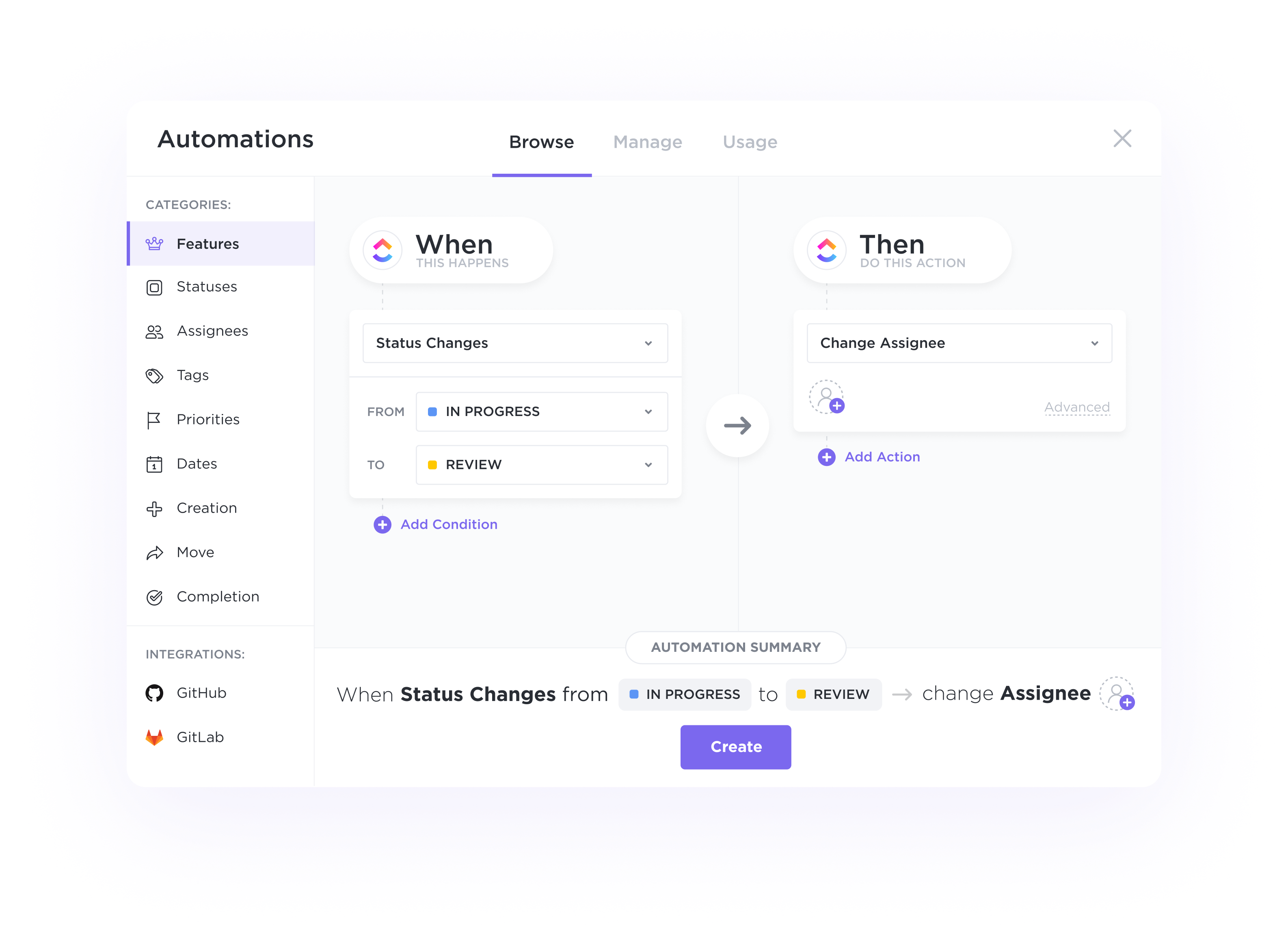Automate handoffs, status updates, and more.
Automatically assign tasks for each stage of your pipeline, trigger status updates based on activity, and switch priorities to alert your team on where to focus next.

Supercharge your customer relationships with ClickUp's customizable CRM system designed specifically for Health Care Professionals. Streamline patient interactions, track medical histories, and optimize your practice's workflow all in one place. Elevate your patient care and grow your practice with ClickUp today.
Free forever.
No credit card.
Trusted by the world’s leading businesses
Automatically assign tasks for each stage of your pipeline, trigger status updates based on activity, and switch priorities to alert your team on where to focus next.

Create your ideal system to store and analyze contacts, customers, and deals. Add links between tasks, documents, and more to easily track all your related work.

CRM software helps health care professionals improve patient communication and engagement by centralizing patient information, enabling personalized interactions, automating appointment reminders, and facilitating follow-ups for better care coordination and patient satisfaction.
CRM software offers features like appointment scheduling, automated reminders, calendar integration, patient profiles with appointment history, follow-up task management, and customizable communication templates to help health care professionals efficiently manage and track patient appointments and follow-ups.
Yes, CRM software can integrate with EHR systems to streamline data management, improve efficiency, and enhance patient engagement in health care practices.